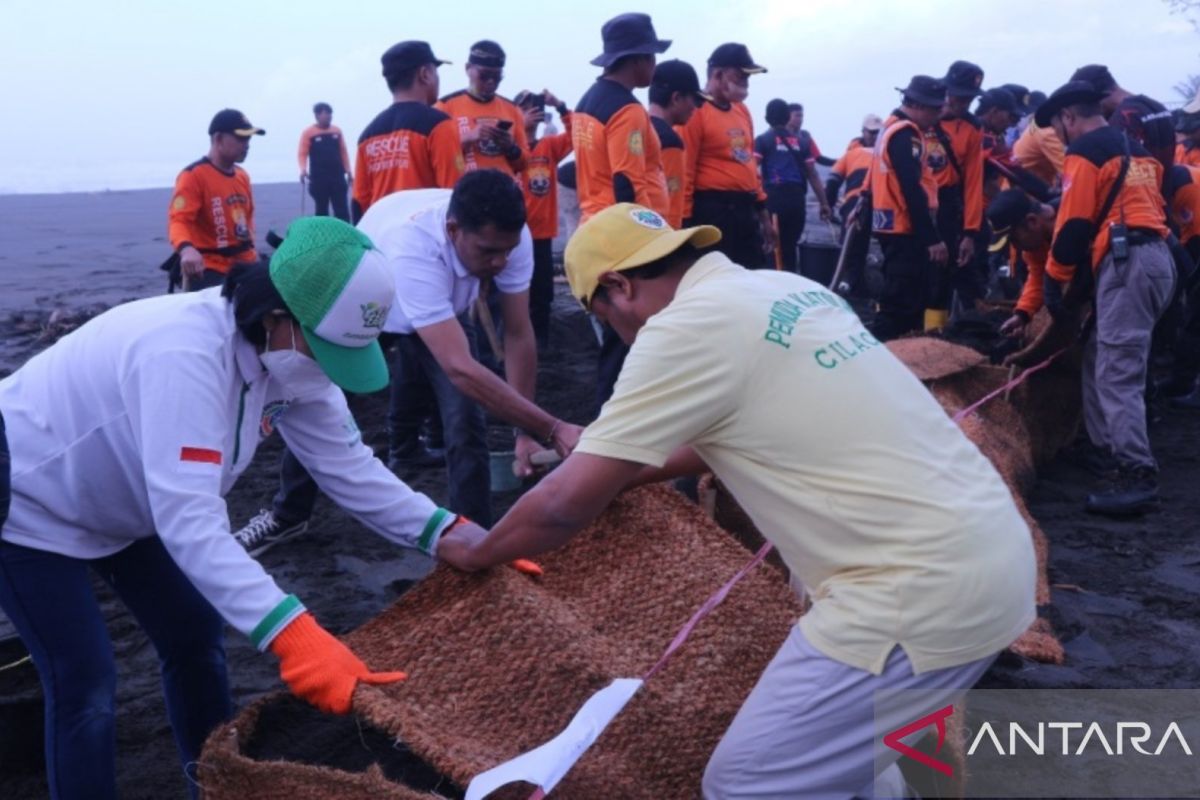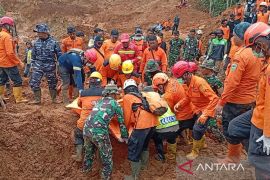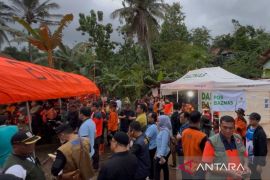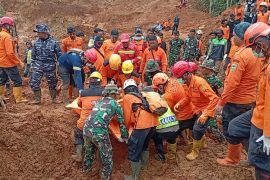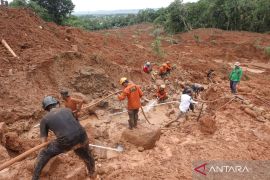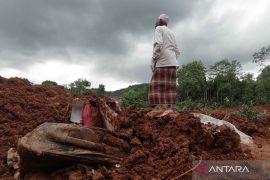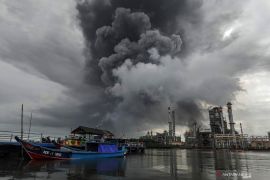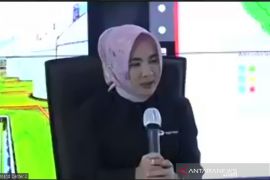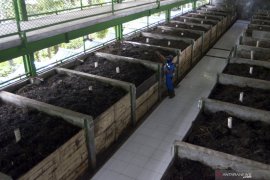The National Disaster Management Agency (BNPB) is installing eco-friendly gabions to prevent abrasion along the coastline of Cilacap District, Central Java Province.
A gabion refers to a wall-like structure consisting of stacks or rows of cages, cylinders, or boxes that may be filled with varied materials, such as sand, rock, soil, or concrete.
Head of BNPB’s Data, Information, and Disaster Communication Center, Abdul Muhari, stated in Jakarta on Saturday that the agency's gabions are regarded as eco-friendly to the coastal environment, as they are made of coconut fiber.
He remarked that the BNPB is confident about the durability of the gabions against sea waves, as the coconut fiber fillings are made compact with iron wires. Moreover, the eco-friendly gabions garnered a national-level award at a disaster mitigation commemorative event last year.
Muhari then highlighted that the BNPB is involving Central Javan doormat craftsmen to weave the gabions in the hopes of bringing economic benefits to the region.
According to Muhari, the gabion installation process has been underway since Tuesday (August 27), starting from Sodong Beach, located in Karangbenda Village, Adipala Sub-district.
Tidal waves recently struck the beach, which stands among Cilacap's tourism destinations, resulting in the flooding of nearby residential areas. Hence, the BNPB deemed it necessary to prevent the recurrence of the event by installing gabions.
Collaborating with the Cilacap district government, the BNPB is targeting to install 200 gabions, with a total length of 60 meters on the beach.
The BNPB is resolute in its commitment to installing coconut fiber gabions in other coastal regions to strengthen Indonesia's disaster mitigation capacity, in accordance with the instructions of Vice President Ma'ruf Amin at the 2024 National Coordination Meeting on Disaster Mitigation in West Java.
Related news: BNPB dispenses Rp1.1 billion for handling of Ternate flash flood
Related news: Indonesia's BNPB distributes aid after Ternate flash flood kills 13
Related news: BNPB reinforces climbing ban on Mt Dukono
A gabion refers to a wall-like structure consisting of stacks or rows of cages, cylinders, or boxes that may be filled with varied materials, such as sand, rock, soil, or concrete.
Head of BNPB’s Data, Information, and Disaster Communication Center, Abdul Muhari, stated in Jakarta on Saturday that the agency's gabions are regarded as eco-friendly to the coastal environment, as they are made of coconut fiber.
He remarked that the BNPB is confident about the durability of the gabions against sea waves, as the coconut fiber fillings are made compact with iron wires. Moreover, the eco-friendly gabions garnered a national-level award at a disaster mitigation commemorative event last year.
Muhari then highlighted that the BNPB is involving Central Javan doormat craftsmen to weave the gabions in the hopes of bringing economic benefits to the region.
According to Muhari, the gabion installation process has been underway since Tuesday (August 27), starting from Sodong Beach, located in Karangbenda Village, Adipala Sub-district.
Tidal waves recently struck the beach, which stands among Cilacap's tourism destinations, resulting in the flooding of nearby residential areas. Hence, the BNPB deemed it necessary to prevent the recurrence of the event by installing gabions.
Collaborating with the Cilacap district government, the BNPB is targeting to install 200 gabions, with a total length of 60 meters on the beach.
The BNPB is resolute in its commitment to installing coconut fiber gabions in other coastal regions to strengthen Indonesia's disaster mitigation capacity, in accordance with the instructions of Vice President Ma'ruf Amin at the 2024 National Coordination Meeting on Disaster Mitigation in West Java.
Related news: BNPB dispenses Rp1.1 billion for handling of Ternate flash flood
Related news: Indonesia's BNPB distributes aid after Ternate flash flood kills 13
Related news: BNPB reinforces climbing ban on Mt Dukono
Translator: M. Riezko, Tegar Nurfitra
Editor: Azis Kurmala
Copyright © ANTARA 2024
